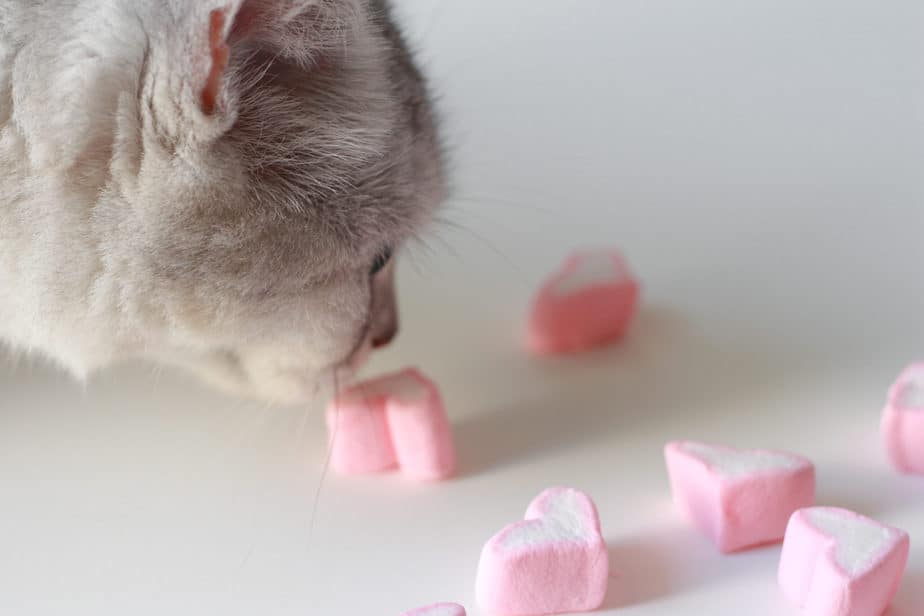If your feline friend is anything like mine, you’ve probably witnessed hilarious reactions to different foods and snacks. Their little ears perk up and curious eyes become fixated on the target as if asking ‘hmm, what have we got here?’. But can cats eat marshmallows? That’s the question.
Being a good pet parent, you want to share different foods and snacks with your trusty sidekick. You can’t even imagine drinking a cup of hot chocolate without adding some deliciously soft marshmallows as an additional treat.
It’s only fair to share them with your favorite furball, right? Wrong – cats can’t eat marshmallows safely. In fact, not only do marshmallows lack nutritional value, but they can easily become a choking hazard. In the worst-case scenario, your cat could end up needing an emergency visit to the vet.
Marshmallows are a type of confectionary typically made from sugar, water, and gelatin (sometimes eggs). They are very popular among humans because of their famous pillowy consistency, and their delicious sweet taste.
While marshmallows aren’t toxic to cats, there are so many reasons why you shouldn’t include them in your pet’s regular diet.
1. Sugar overload
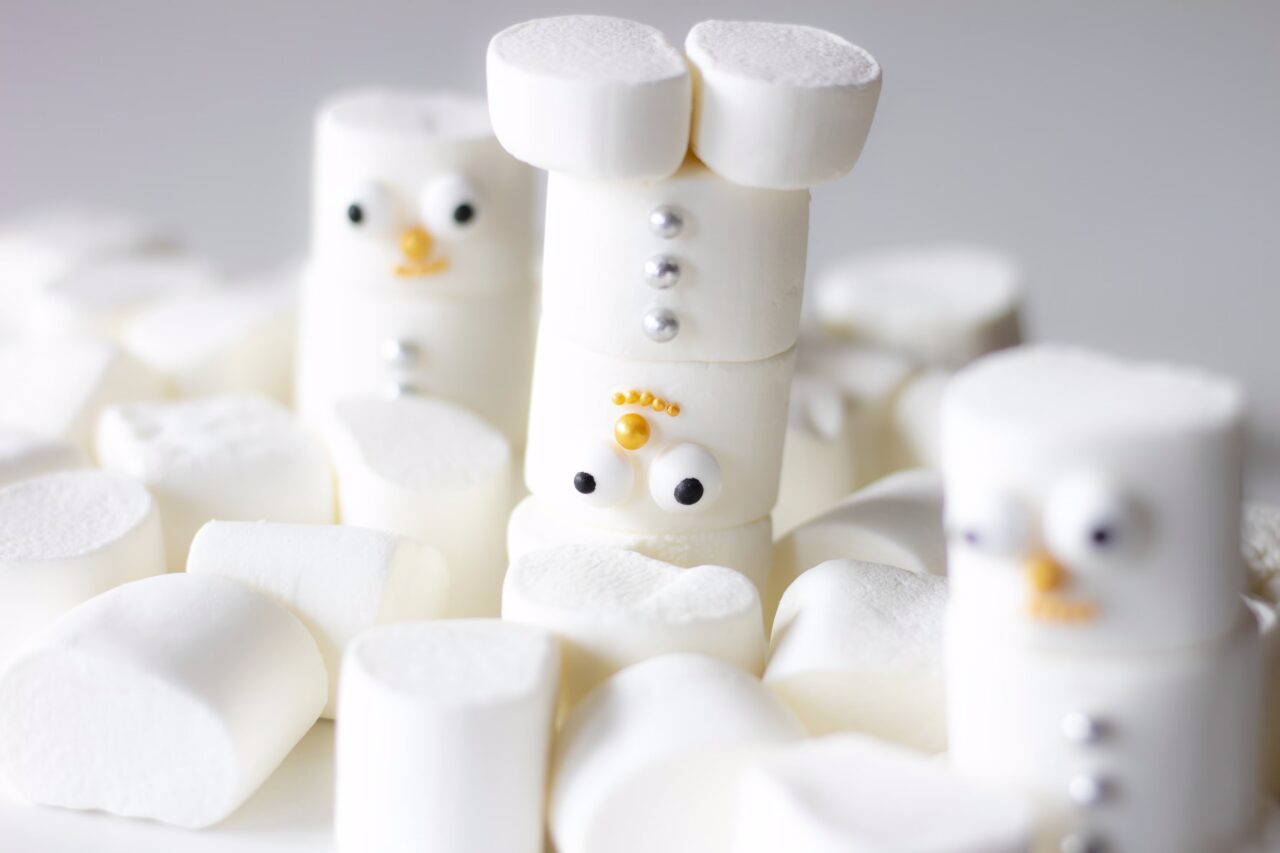
Cats are carnivores. They are the healthiest when they follow a specific diet mostly made up of lean protein, vitamins, and minerals.
Marshmallows contain loads of sugar, which isn’t toxic to cats, but it can lead to feline obesity and diabetes. If you don’t want your furry friend putting on some extra weight you might want to avoid these sugary confectionaries.
Such high amounts of sugar could also lead to serious dental health issues. If that doesn’t convince you to keep your marshmallows to yourself, I don’t know what will.
2. Sodium
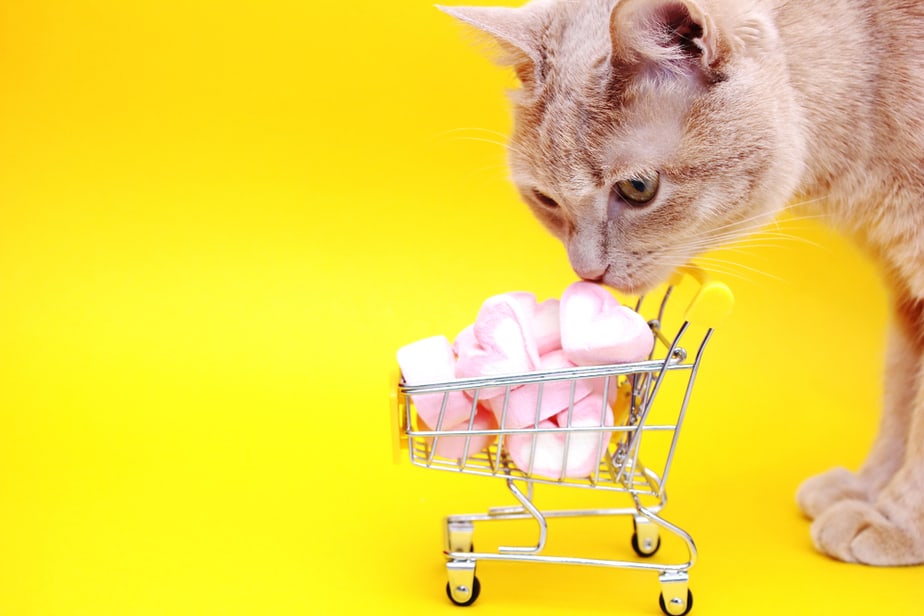
You might be surprised to find out that marshmallows are high in sodium levels, too. A hundred grams of marshmallows contain eighty milligrams of sodium. That sounds crazy, doesn’t it?
Unfortunately, cats have a really low sodium tolerance. Too much of it can affect blood pressure, kidney and heart function as well as the bone density.
3. A choking hazard
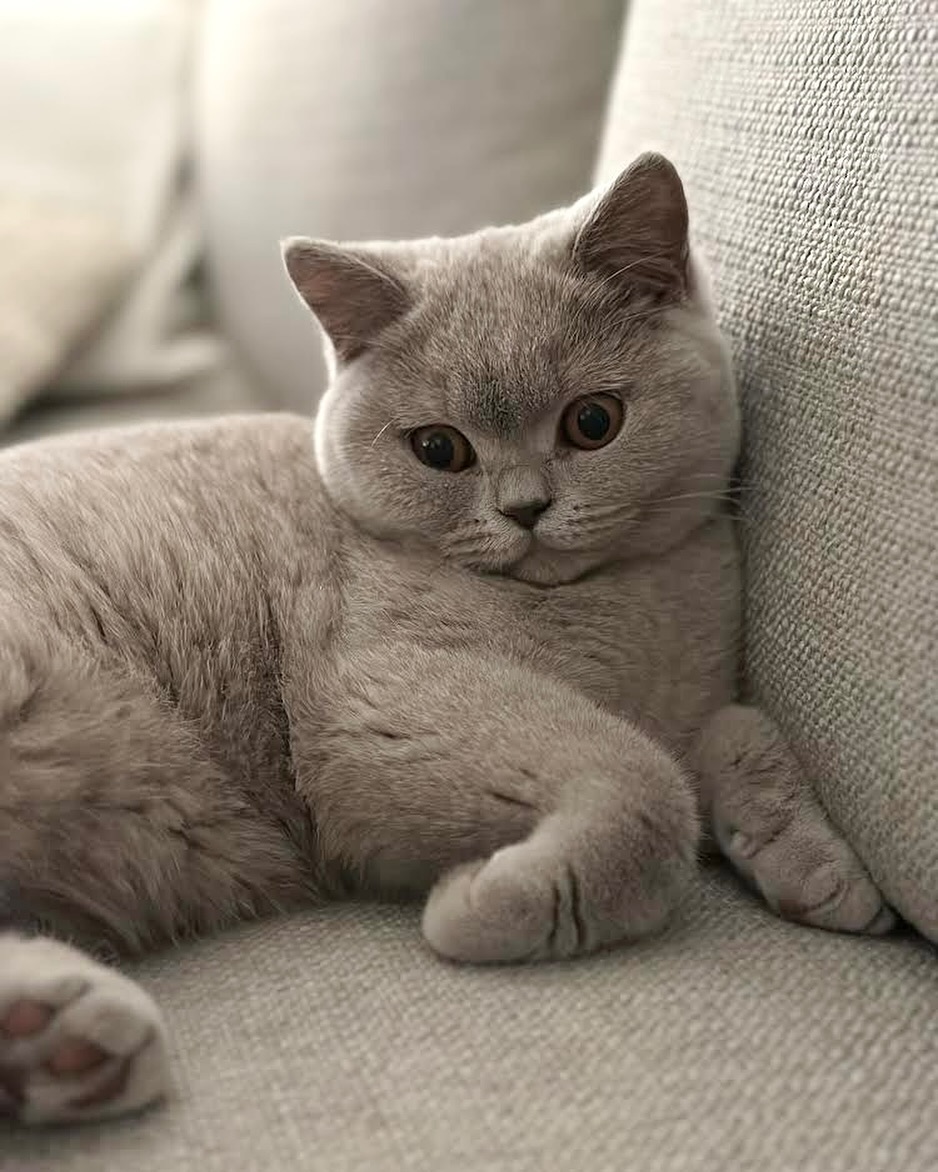
What makes marshmallows so irresistible to humans is their cloud-like shape and squishy consistency. However, these qualities also make them a choking hazard to your pet.
Not so fun fact – marshmallows aren’t recommended for children under the age of three for the same reason. They are super sticky, and they can easily get squished and stuck in a child’s throat. The same thing could happen to your feline friend if you’re not careful enough.
4. High in calories
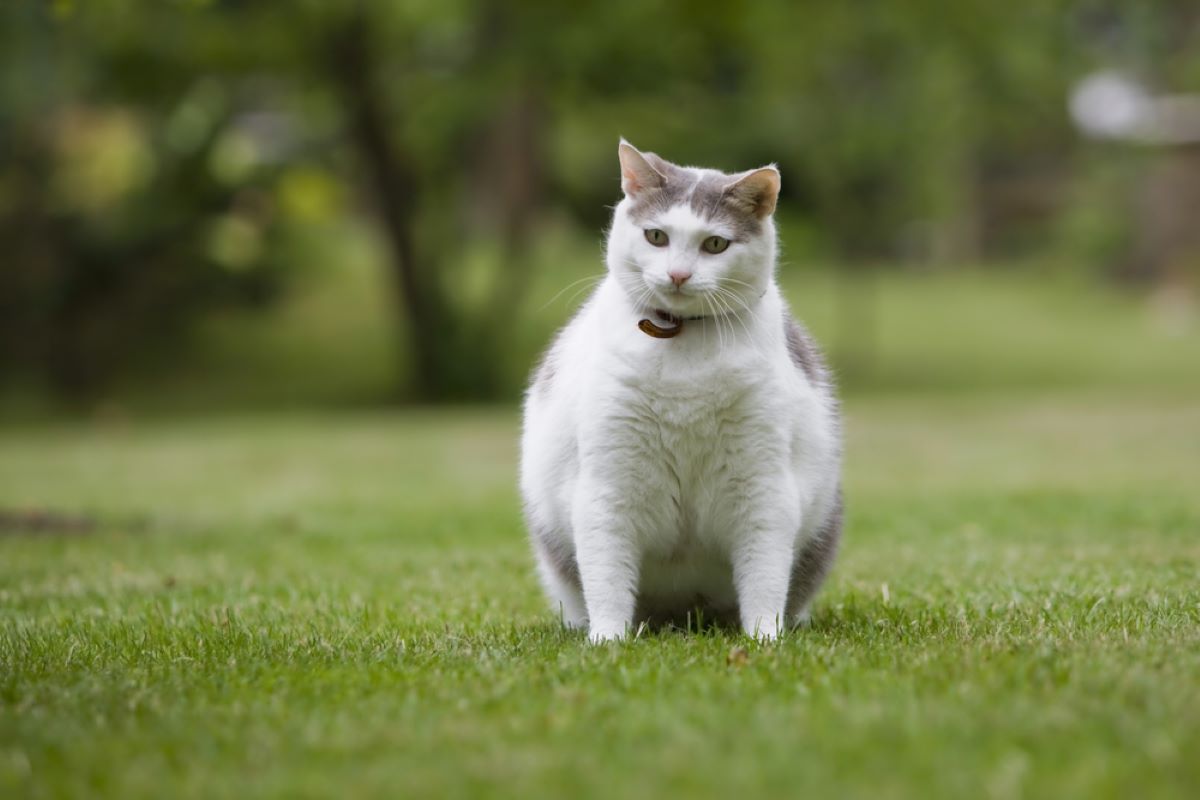
“Can cats eat marshmallows? Aren’t they calorie-dense?”
An average marshmallow has about 23 calories. Although there are different types of marshmallows, most of them are high in calories and low in nutritional value.
If your furry friend is already chubby, you might want to skip these treats. There is nothing wrong with putting on a bit of weight, but you have to be careful with how it affects their overall health.
5. Low nutritional value
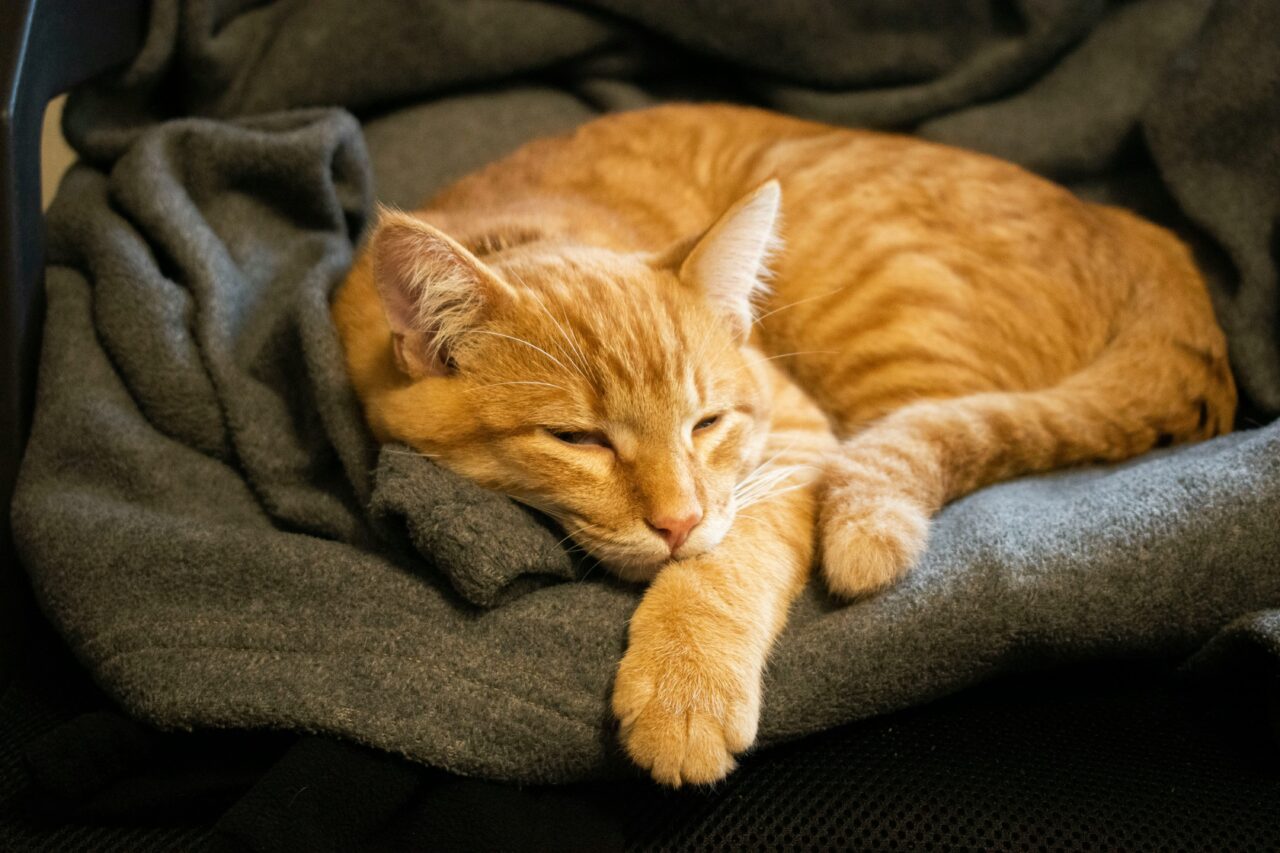
Lastly, there are no benefits to feeding your cat marshmallows. They have little to no nutritional value since cats require a protein-packed diet.
Chances are, your feline friend is curious about marshmallows because of their odd appearance and not because of their taste. Cats can’t taste sweet things since they don’t require carbohydrates in their diets. Most sweets (chocolate cake, banana bread, blueberry muffins…) don’t belong in their bellies.
Since there’s nothing beneficial in marshmallows, feeding them to your cat could only cause them harm.
What should I do if my cat eats a marshmallow?
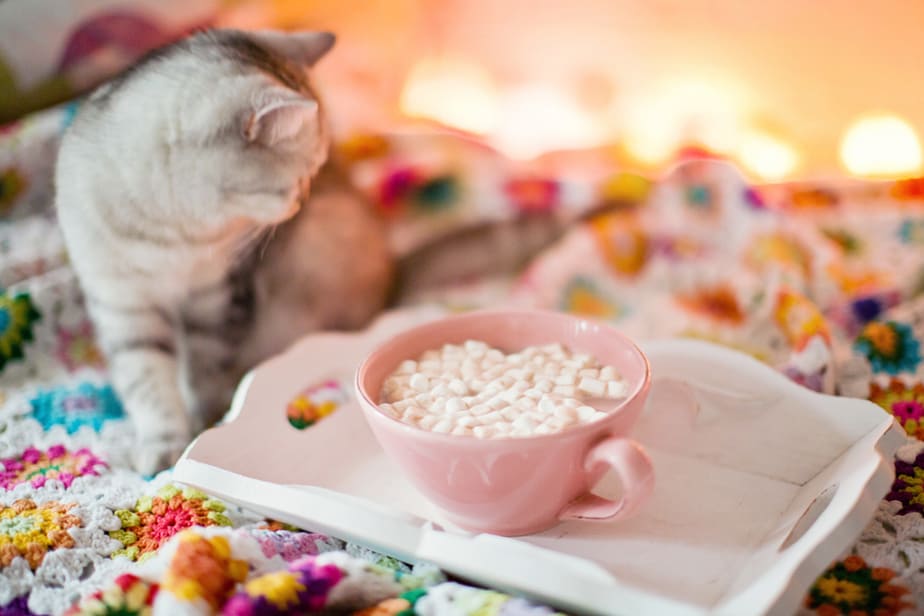
If your furball has managed to sneakily steal a marshmallow or two, don’t panic! Check if your cat is showing any signs of choking. If it is, you should contact your vet immediately and make sure to follow their advice to a tee.
If she has managed to eat marshmallows safely and isn’t showing any signs of distress, stay paw-sitive! These delicious treats aren’t poisonous to cats and won’t cause them any immediate harm. Just take them away and make sure it doesn’t happen again.
How do you deal with a furry beast that keeps insisting on eating all your treats? You can always keep healthy alternatives around when you’re getting ready to enjoy a delicious snack yourself. It is much easier to resist their pouty snout when you have a plan B.
Marshmallows are universally loved among most pet parents, so it doesn’t come as a surprise that many believe it’s okay to feed them to your cat every once in a while. Marshmallows might not be toxic to your beloved pet, but there are so many other reasons to avoid them.
They have no nutritional benefits, they are high in sugar and sodium, and they can become a choking hazard. All these reasons should be enough to make you rethink when choosing appropriate snacks for your cat.
Keep in mind – some cats LOVE marshmallows and would eat an entire bag if given a chance. Make sure to always keep them out of your kitty’s reach and enjoy them responsibly.
